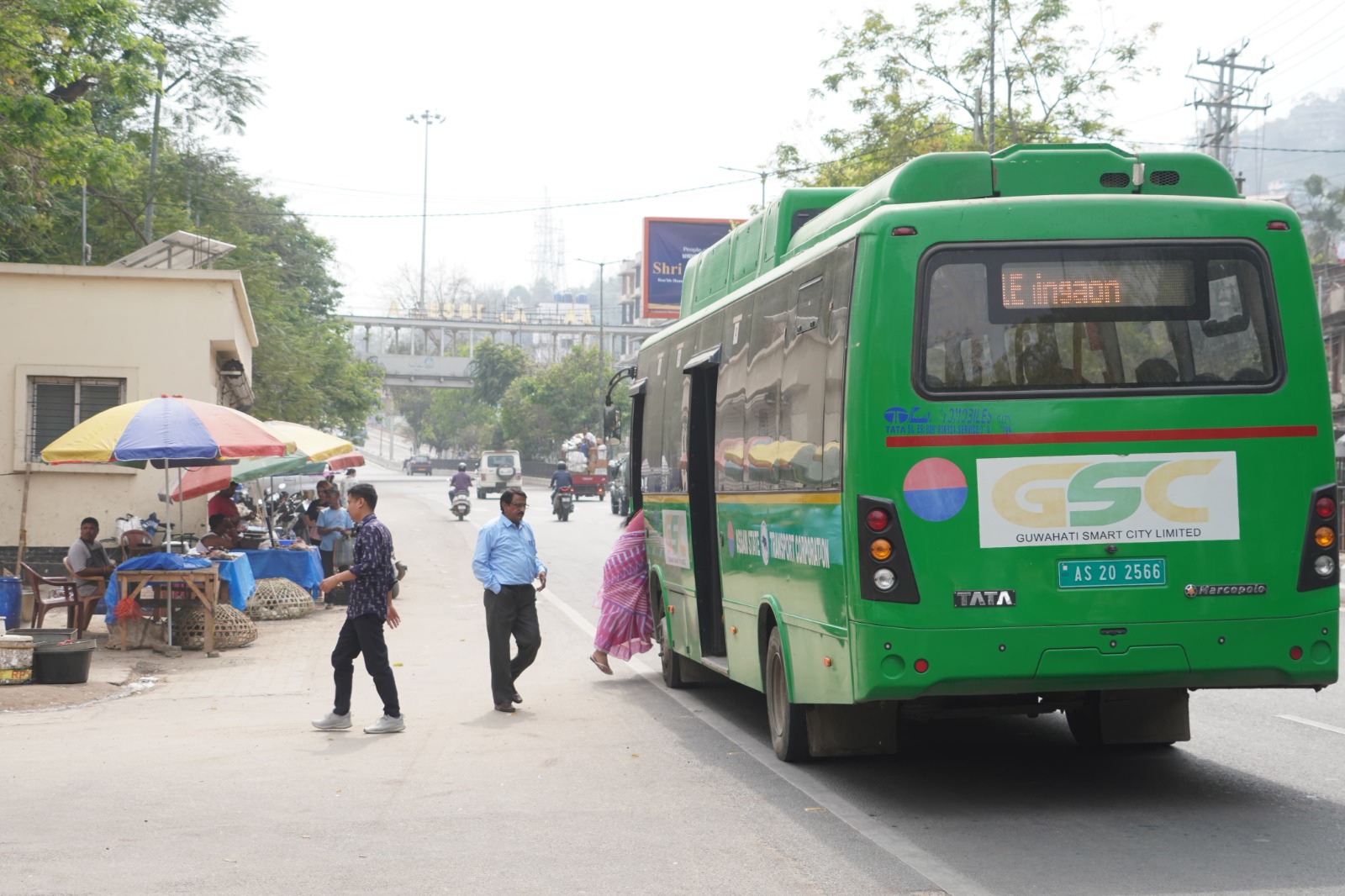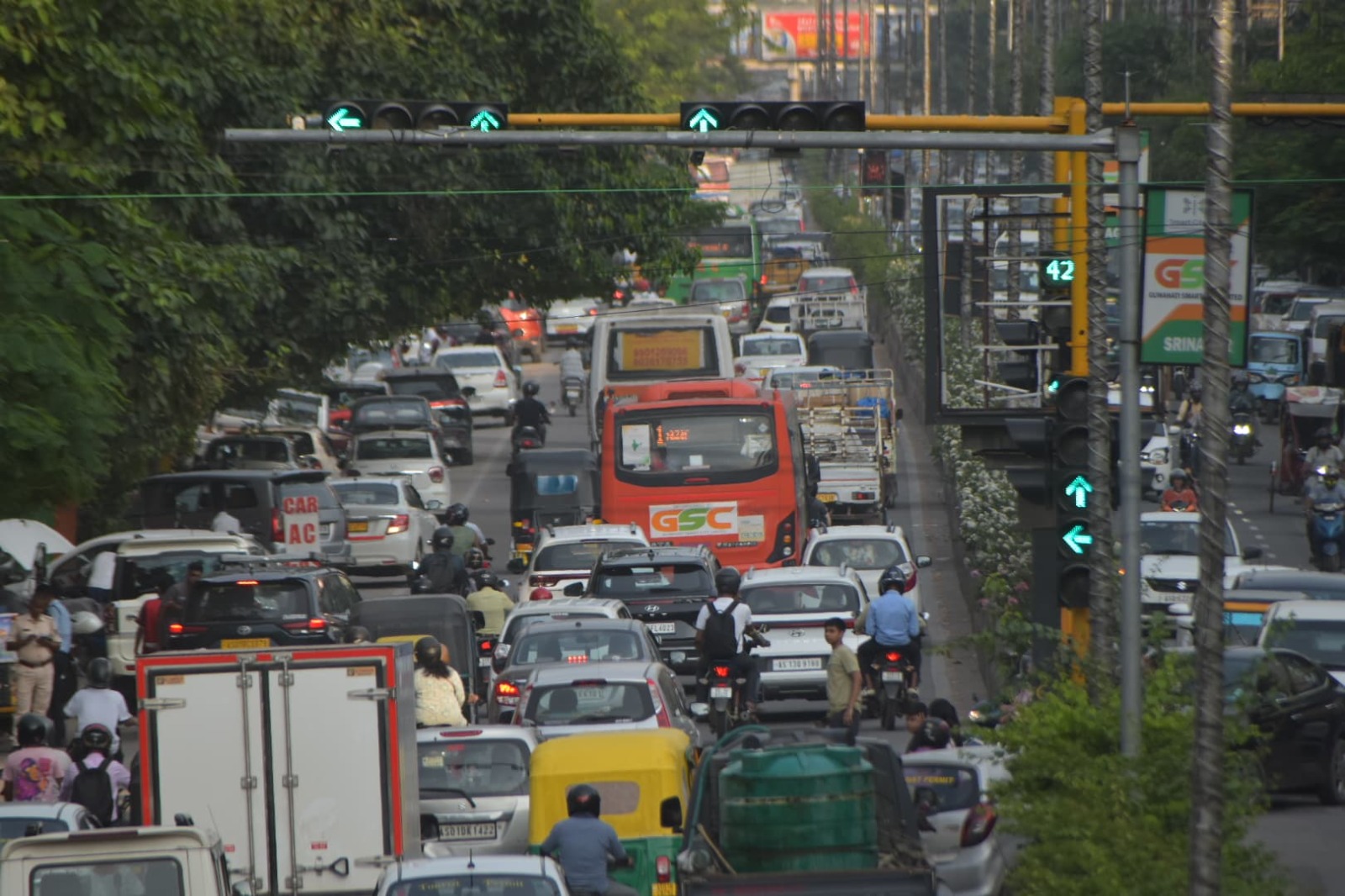The Smart City Mission envisioned cities where technology would intersect with good governance and sustainable development. Instead, Guwahati’s experience has been one of missed opportunities, wasted funds, and policy paralysis
When Prime Minister Narendra Modi launched the Smart City Mission on June 25, 2015, it was hailed as a transformative urban renewal initiative to reimagine India's cities for the 21st century. Among the first 20 cities selected under this flagship mission was Guwahati, the gateway to Northeast India and the region’s largest metropolis. Nearly a decade later, the city's residents, planners, and even insiders at Guwahati Smart City Limited (GSCL) agree on one sobering truth: Guwahati is still far from being ‘smart.’
Even a school-going child in Guwahati today could attest that Modi’s dream of creating a modern, sustainable and citizen-friendly city has largely been reduced to a scattered patchwork of underwhelming infrastructure projects and bureaucratic missteps.
While other cities from the first batch—like Pune and Surat—have made visible strides in achieving core smart city goals, Guwahati has been plagued by delays, poor planning, and fund mismanagement. The ground reality is a glaring contrast to the grand vision of round-the-clock electricity, intelligent traffic systems, clean public spaces, non-motorised transit, smart surveillance, and efficient waste management that the mission had promised.
A senior official from GSCL, speaking on condition of anonymity, candidly revealed that actual work under the Smart City Mission only began in 2021—six years after the project’s conceptualisation. “Prior to that, the Special Purpose Vehicle (SPV) could not even utilise the funds allocated by the Centre,” the official admitted. As a result, Guwahati lost out on additional funding, which could only be availed after submitting proper utilisation certificates.
In its initial phase, the GSCL received Rs 396 crore from the Ministry of Urban Development, which remained largely untouched until 2021. The total budget for the city’s smart city plan was Rs 2,256 crore, with the Centre and state government each expected to contribute Rs 500 crore. The remaining amount was to come from urban local bodies, public-private partnerships, and innovative financing mechanisms such as municipal bonds and land monetisation. But despite these plans, Guwahati failed to effectively mobilise either institutional or alternative funding sources.
As per mission guidelines, cities were to focus on 24/7 electricity with a minimum 10 per cent solar energy, smart metering, energy-efficient street lighting, uninterrupted water supply, rainwater harvesting, robust waste management, IT connectivity, smart roads, CCTV surveillance, and pedestrian-friendly infrastructure. Almost none of these have been comprehensively implemented in Guwahati.
The result? Disappointment and disillusionment.
While the GSCL today claims that projects worth Rs 814.29 crore are ongoing, most of these were only initiated in 2021 or later. These include the high-profile Brahmaputra Riverfront Development (Rs 327.30 crore), Integrated Traffic Management System (Rs 78.44 crore), procurement of EV and CNG buses, the Light and Sound shows at Gandhi Mandap and Kalakshetra, Gandhi Mandap Museum renovation, and a Welcome Gate project (Rs 56 crore). Of the 16 projects currently being executed, only a handful like the procurement of CNG and EV buses and the Gandhi Mandap Light and Sound Show have been completed.
And while these projects may add aesthetic or symbolic value, they fall short of offering long-term utility or meeting the core "smart city" metrics. In fact, none of the executed projects under GSCL have generated any revenue, according to the same source.
More embarrassing is the failure to execute critical infrastructure projects. Chief among them is the Rs 215 crore Integrated Command and Control Centre (ICCC), considered the nerve centre for smart surveillance and traffic management in other cities. Prepared in 2018 by Tata Consulting Engineers and with a Request for Proposal (RFP) floated, the ICCC never got off the ground.

The city struggles from basic security amenities.
Originally envisioned as a central monitoring hub for over 5,000 CCTV cameras and city-wide analytics, the project was stalled first by land acquisition issues, then by the transfer of a key GSCL managing director, and finally buried under litigation when a Public Interest Litigation (PIL) was filed in the Gauhati High Court. While most of the original 20 smart cities made ICCC a cornerstone of their transformation plans, Guwahati dropped the project altogether.
Several other vital projects were also discarded: Borsola Beel development, Mora Bharalu development, Deepor Beel conservation, the special road to AIIMS Changsari, smart roads, and bicycle tracks. These were dropped not for lack of importance but due to political inertia, bureaucratic reshuffles, and absence of continuity in leadership.
GSCL has seen as many as six managing directors in nine years. Each new bureaucrat brought new priorities, often ignoring or shelving the work of predecessors. This lack of institutional memory and commitment has significantly contributed to the mission’s stagnation in Guwahati.
State Housing and Urban Development Minister Ashok Singhal admitted early in 2023 that GSCL could not undertake any new projects because of a lack of funds. After April 1, 2023, the Centre stopped funding Guwahati under the Smart City Mission, choosing instead to redirect resources to other cities that were showing results. The last project initiated by GSCL is the state-funded installation of CCTV cameras—a move that feels more like damage control than progress.
To be fair, the COVID-19 pandemic did slow down progress across all Smart City projects nationwide, and the Centre had extended the implementation deadline by a year. But even with this grace period, Guwahati’s record remains dismal.
Noted city-based architect Ranel Das raised an important point: what constitutes a ‘smart’ city? “The government has taken up various projects. But will it make the city smart? It should be clarified by the government,” he said. According to Das, the city still lacks pedestrian-friendly footpaths—a basic urban necessity that should have been prioritised.

Guwahati's traffic has crossed its tolerance threshold.
Indeed, Guwahati’s public infrastructure remains largely unchanged: roads are congested, drains clog during monsoons, public toilets are in disrepair, and the much-hyped water ATMs have either broken down or been vandalised. The Rs 26 crore spent on ‘super sucker’ machines to clear the drains has not alleviated urban flooding. These machines now lie underutilised, gathering rust and raising further questions about planning and procurement.
Despite all this, the state government continues to project optimism. A senior GSCL official claimed that the Centre will soon provide Rs 145 crore under the CITIES 2.0 initiative for solid waste management. The official also said that Assam Chief Minister Himanta Biswa Sarma has set 2030 as the new deadline to make Guwahati ‘smart.’
But with most of the Smart City Mission’s term completed and only a fraction of its goals met, residents are not buying into that hope.
The Smart City Mission envisioned cities where technology would intersect with good governance and sustainable development. Instead, Guwahati’s experience has been one of missed opportunities, wasted funds, and policy paralysis. While a few visual improvements may eventually be delivered—like a better riverfront or more buses—the core problems that affect everyday life in the city remain unaddressed.
As Guwahati inches closer to 2030, the question looms large: can a city that fumbled with almost every aspect of its smart transformation truly become ‘smart’ in five more years? Or is the Smart City Mission, at least for Guwahati, a well-intentioned dream that never left the drawing board?
Only time will tell. But for now, Guwahati remains a stark reminder that when grand visions are not matched by competent execution, even a decade may not be enough to make a city smart.



